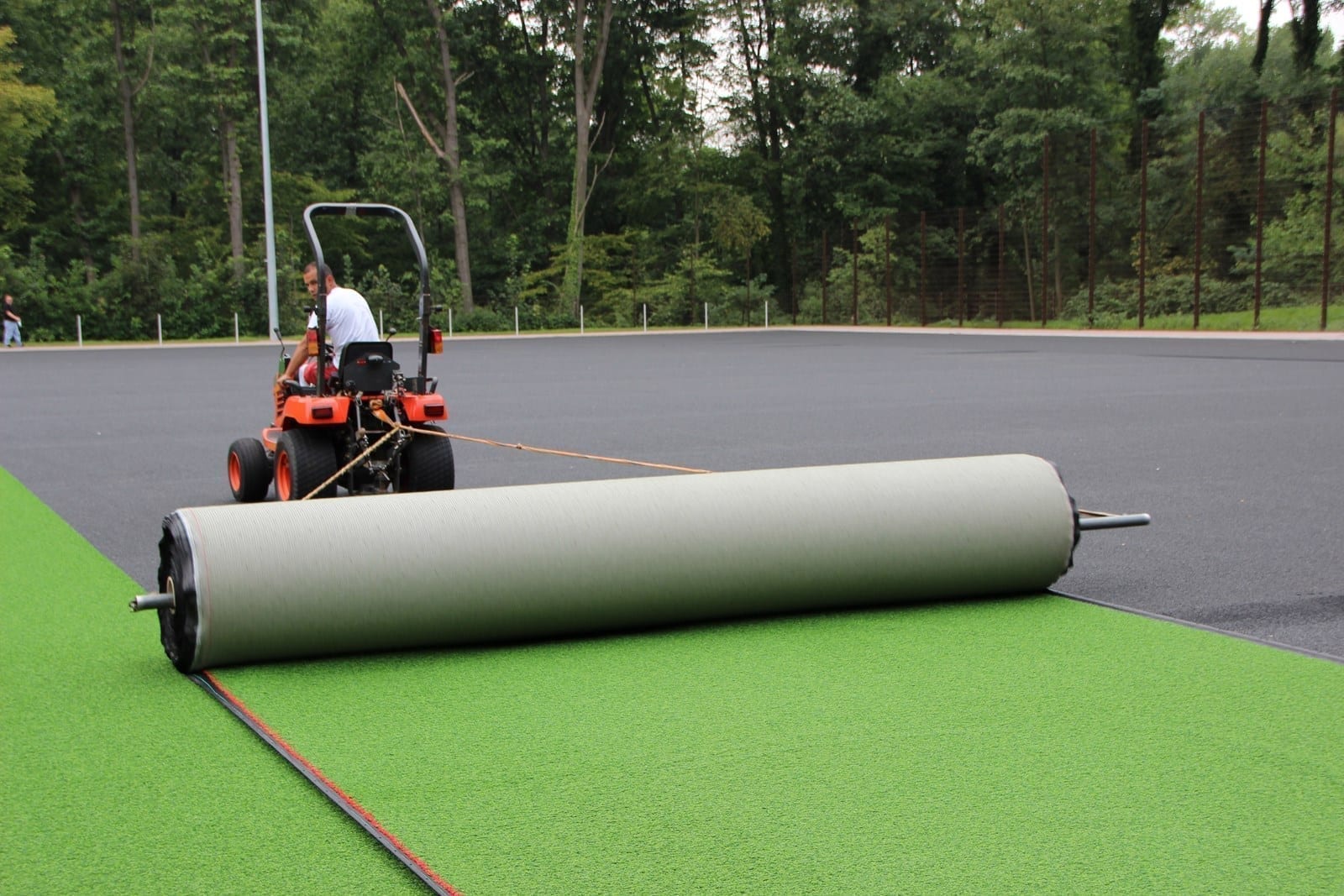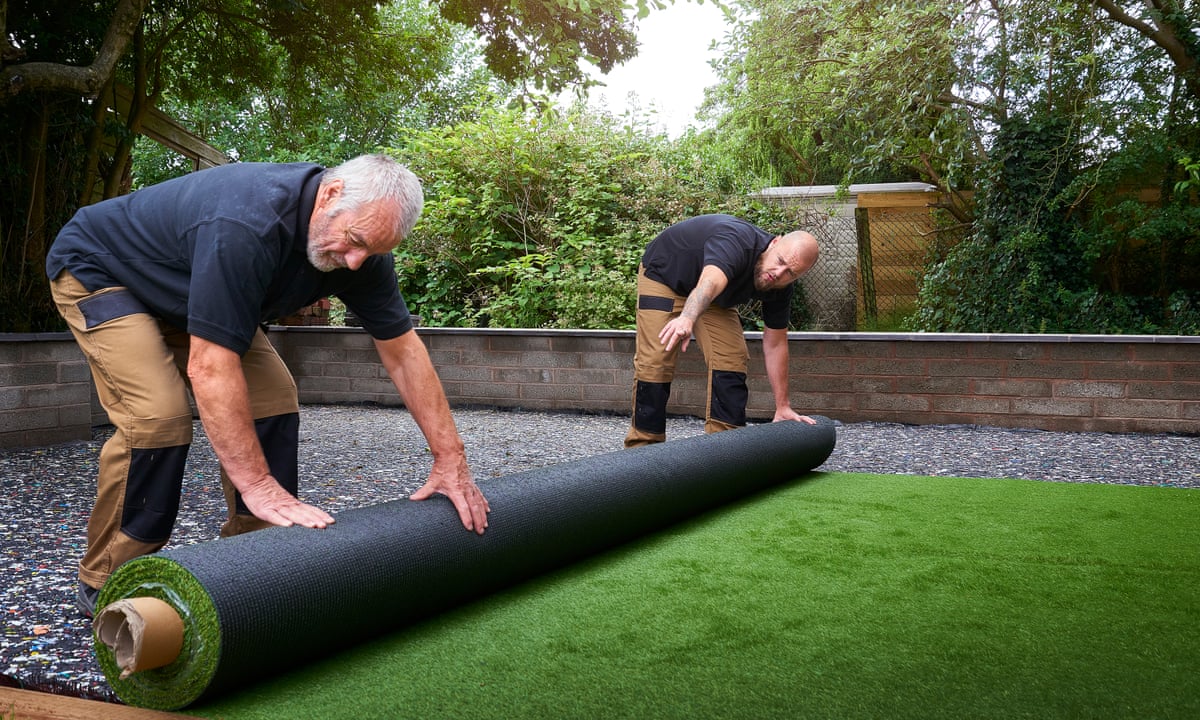Tailored Turf Installation Phoenix AZ for Residences, Companies, and Recreational Spaces
Tailored Turf Installation Phoenix AZ for Residences, Companies, and Recreational Spaces
Blog Article
Look Into the Environmental Advantages of Opting for Artificial Turf Solutions
The adoption of synthetic grass options provides a compelling chance to resolve pressing environmental difficulties. By substantially lowering water use and decreasing the application of harmful chemicals, these choices not just advertise sustainable landscape design however likewise secure local communities. The lower carbon footprint associated with reduced maintenance tasks adds to an extra lasting method to land administration. Nevertheless, the implications of these benefits expand past mere conservation initiatives, questioning about their long-lasting influence on habitat preservation and general eco-friendly equilibrium. Checking out these dimensions discloses a complex interaction worth taking into consideration.
Water Conservation Conveniences
One of the most significant advantages of fabricated lawn is its capability to preserve water. In comparison, man-made grass does not require watering, dramatically lowering the total demand for water sources.
By removing the demand for normal watering, synthetic grass adds to lasting landscape practices and aids mitigate the environmental impact of excessive water consumption. Furthermore, the preservation of water expands to the reduction of drainage, which can cause dirt disintegration and river pollution.
In addition, the installation of synthetic grass allows home owners and towns to designate water resources extra successfully, concentrating on essential uses such as alcohol consumption water and farming. The shift in the direction of synthetic turf not only promotes liable water use but additionally straightens with more comprehensive environmental goals targeted at preserving natural sources.
As communities progressively prioritize sustainability, the water conservation advantages of synthetic grass provide an engaging case for its fostering in residential and commercial landscaping tasks.
Minimized Chemical Usage
The change to synthetic grass considerably lowers the dependence on chemical therapies typically used in natural grass upkeep. Traditional turf monitoring typically includes the application of herbicides, chemicals, and plant foods to advertise development and control parasites. These chemicals can posture risks to human health, regional wild animals, and the atmosphere, adding to dirt and water contamination.
In comparison, fabricated turf gets rid of the demand for these dangerous materials. By minimizing the release of artificial compounds right into the environment, artificial turf promotes healthier dirt and water systems.
Moreover, the absence of chemical drainage related to artificial grass installments helps safeguard regional waterways from pollution, sustaining marine life and preserving biodiversity. Artificial turf companies phoenix. As neighborhoods increasingly focus on lasting techniques, selecting man-made turf offers a practical option that aligns with ecological conservation goals. With this shift, homeowner can appreciate lush eco-friendly spaces without jeopardizing ecological health and wellness, leading the means for a more sustainable future
Lower Carbon Footprint

Moreover, the setup of synthetic turf can lead to considerable water preservation. Natural grass require substantial quantities of water for watering, which not only contributes to the carbon impact connected with water removal and therapy but also pressures local water sources. In comparison, man-made turf requires minimal maintenance, calling for no watering, consequently dramatically reducing water use and its linked energy prices.
Additionally, the long life of fabricated turf adds to its decreased carbon impact. With a lifespan of approximately 15 years or even more, the requirement for constant replacements is reduced, leading to less waste and reduced power usage in manufacturing and dealing with conventional lawn alternatives. Generally, fabricated lawn offers a lasting choice for eco conscious landscaping.
Environment Conservation
Environment preservation is a crucial consideration in the debate over landscaping options, especially when contrasting synthetic grass to all-natural grass. All-natural lawn yards frequently need substantial upkeep, including making use of herbicides, chemicals, and plant foods, which can adversely affect regional ecological communities. These chemicals can leach right into the soil and waterways, hurting native plants and fauna and interfering with local environments.
Synthetic grass eliminates the requirement for unsafe chemicals, consequently protecting nearby wild animals and maintaining the stability of surrounding ecological communities. The installation of synthetic grass can lead to the conversion of former lawn locations into more biodiverse landscapes, such as pollinator yards or native plant locations, which can support regional wildlife.
Ultimately, the change to synthetic turf not only preserves water and decreases upkeep efforts yet click to find out more additionally promotes a much more harmonious connection between human tasks and the all-natural environment, promoting habitat conservation while doing so.
Long-Term Sustainability
Lasting sustainability is a critical consider assessing the advantages of synthetic grass over traditional lawn lawns. Among the most considerable advantages of artificial turf is its longevity; it can last as much as 15-20 years with marginal upkeep, whereas all-natural grass needs frequent reseeding and substitute. This durability reduces the requirement for constant sources, such as water, plant foods, and pesticides, which are necessary for preserving a healthy and balanced yard yard.
In addition, synthetic grass adds to a reduction in carbon discharges related to lawn treatment devices. Traditional lawns frequently call for gas-powered mowers, leaners, and blowers, every one of which add to air pollution. Arizona artificial turf. On the why not find out more other hand, synthetic grass removes the need for such equipment, advertising a cleaner atmosphere
In addition, the manufacturing of fabricated grass increasingly uses recycled materials, enhancing its sustainability profile. As producers adopt green methods, the ecological footprint of synthetic grass proceeds to decrease.

Conclusion
The fostering of synthetic grass solutions provides significant environmental benefits, including considerable water conservation, minimized dependence on harmful chemicals, and a lower carbon impact. Fabricated lawn help in protecting natural environments by decreasing land disruption and promoting long-term sustainability with the use of long lasting materials. Jointly, these variables underscore the potential of synthetic grass to contribute favorably to environmental health and provide a practical option to conventional landscape design techniques in a significantly resource-conscious globe.
In comparison, artificial turf does not need watering, dramatically lowering the overall demand for water sources. By decreasing the release of artificial compounds into the ecological community, synthetic lawn promotes much healthier dirt and water systems.
Moreover, the installment of fabricated lawn can result in significant water conservation. In comparison, artificial grass requires very little maintenance, requiring no watering, thus significantly minimizing water usage and its linked power costs.

Report this page